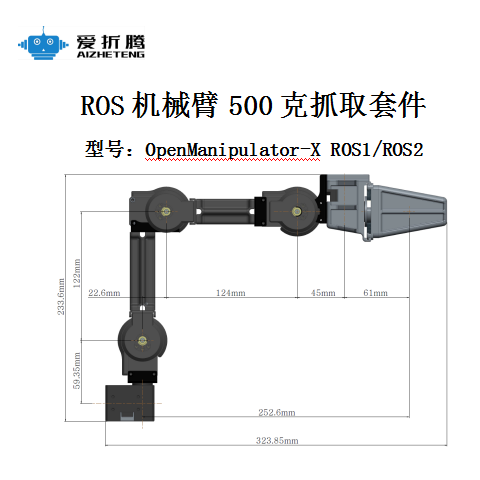树莓派3-摄像头-视频软件mjpg-streamer的安装使用
概要
- "MJPG-streamer",是用于从webcam摄像头采集图像,把他们以流的形式通过基于ip的网络传输到浏览器如Firehox,Cambozola,VLC播放器,Windows的移动设备或者其他拥有浏览器的移动设备。她可以利用某些webcams的硬件压缩功能来降低服务器CPU的开销。她为嵌入式设备和一些常规服务器提供了一个轻量且更少CPU消耗的方案,因为她无需为视频帧压缩浪费大量的计算效率(这件事交给硬件了)。例子是:在一个主频200MHz的路由器上(一个例子是cisco经典无线的linkfs
WRT54G路由,其可以运行openWRT(迷你linux系统),主频200MHz,4MRAM,16Flash),流编码一个960x720像素的视频,她可以减少10%的cpu使用。 - 官网,https://sourceforge.net/projects/mjpg-streamer/
- 官网,https://github.com/jacksonliam/mjpg-streamer
依赖软件
- libjpeg8
- cmake
安装
- 安装依赖库
安装libjpeg的dev版本(注:下面所有安装过程中出现是否继续时,统一选择继续:Yes)
sudo apt-get install libjpeg8-dev
- 下载mjpg-streamer
wget https://github.com/jacksonliam/mjpg-streamer/archive/master.zip
unzip master.zip
- 编译mjpg-streamer
- 安装cmake
sudo apt-get install cmake
- 切换到mjpg的路径下
cd mjpg-streamer-master/mjpg-streamer-experimental
make
sudo make install
用法介绍
pi@raspberrypi:~ $ mjpg_streamer --help
-----------------------------------------------------------------------
Usage: mjpg_streamer
-i | --input "<input-plugin.so> [parameters]"
-o | --output "<output-plugin.so> [parameters]"
[-h | --help ]........: display this help
[-v | --version ].....: display version information
[-b | --background]...: fork to the background, daemon mode
-----------------------------------------------------------------------
Example #1:
To open an UVC webcam "/dev/video1" and stream it via HTTP:
mjpg_streamer -i "input_uvc.so -d /dev/video1" -o "output_http.so"
-----------------------------------------------------------------------
Example #2:
To open an UVC webcam and stream via HTTP port 8090:
mjpg_streamer -i "input_uvc.so" -o "output_http.so -p 8090"
-----------------------------------------------------------------------
Example #3:
To get help for a certain input plugin:
mjpg_streamer -i "input_uvc.so --help"
-----------------------------------------------------------------------
In case the modules (=plugins) can not be found:
* Set the default search path for the modules with:
export LD_LIBRARY_PATH=/path/to/plugins,
* or put the plugins into the "/lib/" or "/usr/lib" folder,
* or instead of just providing the plugin file name, use a complete
path and filename:
mjpg_streamer -i "/path/to/modules/input_uvc.so"
-----------------------------------------------------------------------
启动mjpg_streamer
- 执行命令:
/usr/local/bin/mjpg_streamer -i "/usr/local/lib/mjpg-streamer/input_uvc.so -n -f 30 -r 1280x720" -o "/usr/local/lib/mjpg-streamer/output_http.so -p 8080 -w /usr/local/share/mjpg-streamer/www"
- 显示如下:
$ /usr/local/bin/mjpg_streamer -i "/usr/local/lib/mjpg-streamer/input_uvc.so -n -f 30 -r 1280x720" -o "/usr/local/lib/mjpg-streamer/output_http.so -p 8080 -w /usr/local/share/mjpg-streamer/www"
MJPG Streamer Version.: 2.0
i: Using V4L2 device.: /dev/video0
i: Desired Resolution: 1280 x 720
i: Frames Per Second.: 30
i: Format............: JPEG
i: TV-Norm...........: DEFAULT
i: The specified resolution is unavailable, using: width 640 height 480 instead
i: Could not obtain the requested pixelformat: MJPG , driver gave us: YUYV
... will try to handle this by checking against supported formats.
... Falling back to YUV mode (consider using -yuv option). Note that this requires much more CPU power
o: www-folder-path......: /usr/local/share/mjpg-streamer/www/
o: HTTP TCP port........: 8080
o: HTTP Listen Address..: (null)
o: username:password....: disabled
o: commands.............: enabled
查看
- 在浏览器http://localhost:8080 打开监控界面
获取最新文章: 扫一扫右上角的二维码加入“创客智造”公众号



















